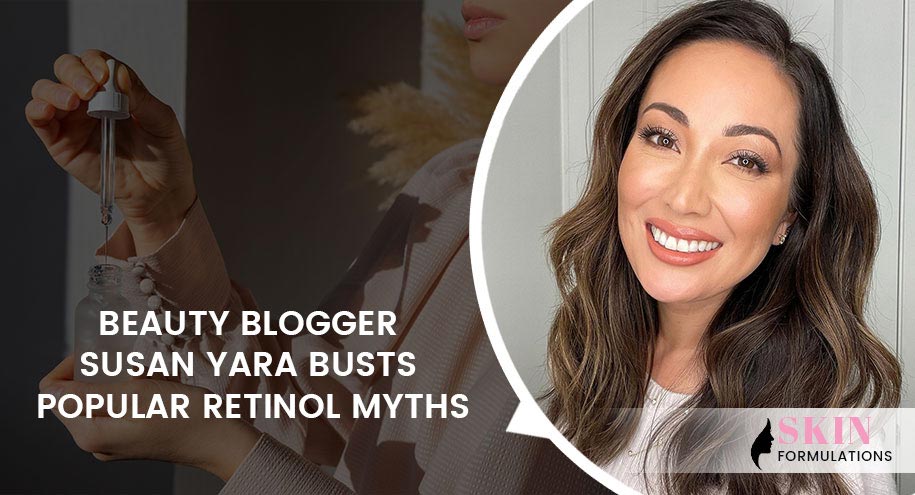Beauty Blogger Susan Yara Busts Popular Retinol Myths

Retinol is one of the most popular skincare ingredients with various anti-aging properties. It falls within the family of Vitamin A derivatives called Retinoids that are widely present in skincare products. However, as popular as retinoids are the myths about the ingredient. If you have been on the fence about Retinol because of its imminent side effects, beauty blogger Susan Yara (@susanyara) is here to help you out! In her recent blog post, Susan busts some popular myths about Retinol in collaboration with a top dermatologist.
Susan Yara is the founder of the blog Mixed Makeup, which brings authentic and factual beauty content to women of all ages. Susan is passionate about skincare and is popular as a subject matter expert on various topics about the domain. She has also recently launched her skincare brand. Susan strongly believes in educating her audience about the science behind skincare, and her recent blog post aligns with this ideology. Here are some interesting facts about Retinol that Susan reveals in the post.
Popular Retinol Myths Busted By Susan Yara
Myth 1 – Retinol Will Make Your Skin Thin
Several people shy away from Retinol because of this myth. However, Susan busts the misconception in her recent blog post. She says that Retinol thickens the inner layers of the skin and only thins the outermost layer. By thinning the outermost layer, Retinol removes dullness and dead skin, which could be a benefit of the ingredient. However, the rest of your skin remains healthy and intact.
Myth 2 – Retinol Exfoliates The Skin
Retinol does cause flakiness for some people, but it is not because the ingredient exfoliates the skin. Susan says that Retinol encourages faster cell turnover in the skin that can lead to flakiness. However, the mechanism is not the same as that of exfoliation. You cannot compare the ingredient directly to exfoliating acids like AHAs or BHAs.
Myth 3 – You Should Only Use Retinol At Night
Susan says that recent skincare formulations using Retinol might be safe to use during the day. For the longest time, Retinol was not considered photostable and only recommended for nighttime use. However, many new Retinol products are stable in sunlight during the day. But you must read the label of any Retinol product to determine when to use it in your skincare regimen.
We hope that these busted myths give you confidence about including Retinol in your skincare routine. To know more about this anti-aging ingredient, check out Susan’s full blog post on mixedmakeup.com.






